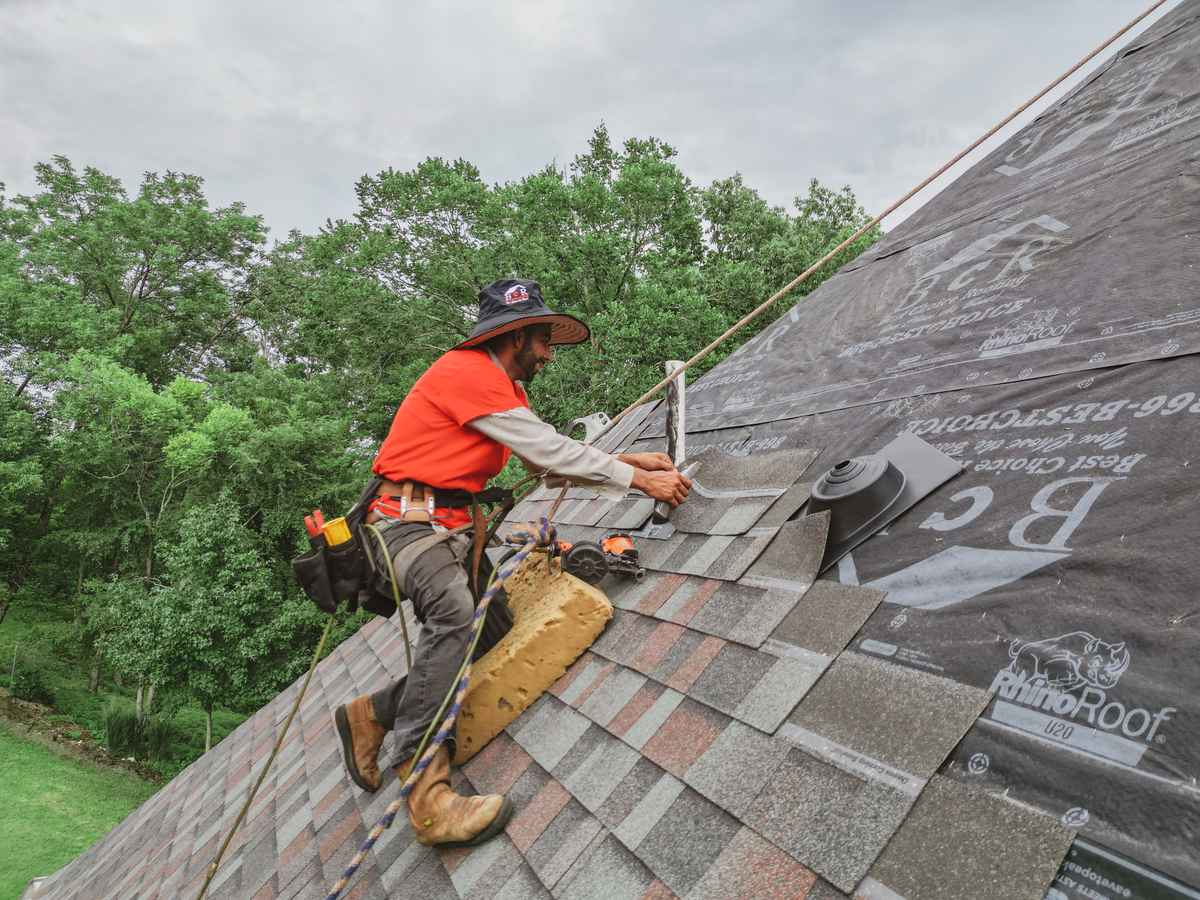The Roofers Statements
The Roofers Statements
Blog Article
Flat Roof Replacements: Expert Roof Restoration Providers To Fix Leaks And Damage Effectively
Exploring Numerous Kinds Of Roof Fixes
Ever gazed at a mysterious dark spot on your roofing and wondered, " What's really going on up there?" Sometimes, identifying the ideal type of roofing repair work resembles detective work, unraveling ideas left by the weather, time, and wear. From subtle leakages to glaring damages, each repair work type tells a story.

Common Roof Repairs Unveiled
- Drip Repairs: The sly culprits-- small fractures or holes where water slips in. Ignoring them can turn a moderate trouble into a costly headache.
- Shingle Replacement: Missing out on or broken shingles aren't just an eyesore; they're invitations for water damage and bugs.
- Flashing Repair: Those metal strips around chimneys and vents? When harmed, they become entrances for leakages.
- Roofing Vent Repairs: Appropriate ventilation keeps your attic dry and your energy bills low. When vents fail, the roof suffers quietly.
When Little Repairs Make a Huge Distinction
Envision a buddy who neglected a small roofing system leak, thinking it was no big deal-- until a storm hit, turning a drip into a deluge inside their home. This anecdote highlights why timely repairs matter. The right fix could be as basic as sealing a crack or as involved as replacing several shingles. However how do you choose? Here's a fast decision guide:
| Problem | Typical Repair | Signs to Enjoy For |
|---|---|---|
| Leakages | Sealant application or patching | Water discolorations on ceiling, mold growth |
| Harmed Shingles | Shingle replacement | Missing granules, curling edges |
| Flashing Problems | Metal flashing repair or replacement | Rust, separation from roofing system |
| Ventilation Problems | Vent repair or setup | Extreme attic heat, wetness accumulation |
Doesn't the complexity of roof repair work make you value the workmanship behind a durable roof? Sometimes, a patchwork job isn't enough-- other times, a fast repair revives your whole roof. What's clear is this: understanding the kinds of repair work empowers homeowners to act decisively, safeguarding their investment before small cracks end up being broad chasms.
Revealing the Necessary Roof Repair Materials
When a roofing whispers signs of wear, the materials you pick for repair work can either extend its life or accelerate its demise. Ever discovered how a handful of loose shingles can lead to a cascade of leakages? That's the fragile dance in between asphalt shingles and weather's ruthless assault. These shingles, frequently the first line of defense, are prized for their balance in between resilience and ease of installation. Be careful-- just covering with mismatched shingles can turn a quick fix into a future headache.
Metal flashing often escapes notification till water spots appear on ceilings. Yet, this unassuming strip guards susceptible joints where various roofing areas meet. Flat Roofing Repairs. A skilled roofing contractor knows to check and replace corroded flashing before mold claims triumph. It's the difference between a minor repair work and a pricey interior restoration
Materials that Matter
| Material | Common Usage | Professional Suggestion |
|---|---|---|
| Asphalt Shingles | Changing harmed or missing shingles | Match granule color and thickness for smooth blending |
| Metal Flashing | Sealing roof joints and around chimneys | Use corrosion-resistant metals and seal edges with roof cement |
| Roof Cement | Sealing minor cracks and securing flashing | Apply while warm for finest adhesion and longevity |
| Roofing Felt | Underlayment for wetness barrier | Essential carefully to prevent puncturing the water resistant layer |
Have you ever wondered why some roofings appear to weather storms unscathed while others falter? The secret frequently lies underneath the surface area in the underlayment. Roof felt, a modest yet important material, functions as a 2nd shield when shingles fail. Cutting corners here indicates inviting moisture to sneak in undetected. Here's a pro insight: always make sure the felt lies flat with no wrinkles; even a little bubble can trap wetness and lead to early rot.
- Inspect fasteners-- loose nails can loosen up shingles and stir catastrophe.
- Utilize a multi-layer approach; combining products boosts strength.
- Remember, roofing cement is your good friend but not a cure-all; it's best for spot repair work.
In the realm of roof repairs, precision with materials goes beyond mere patchwork. It's a calculated symphony of texture, moisture control, and weather condition resistance. The next time you lift a shingle, ask yourself: does this repair work honor the roofing system's initial defense or merely paper over the fractures?
Assessing the Damage with a Keen Eye
Ever climbed onto your roofing system just to recognize that what seemed like a minor leak may be concealing a labyrinth of damaged shingles and deformed decking beneath? The initial step in any roof repair is a precise assessment. Walk the perimeter with care and search for curled edges, dark areas, or granule loss on the shingles-- these subtle indications typically whisper louder than an open hole. Do not just glance; study the angles, since water infiltration seldom reveals itself pleasantly.
Event Materials: The Accuracy of Preparation
Before rising the ladder, ensure you have all the essential tools at arm's reach. Imagine the disappointment of stabilizing on a slanting surface, realizing you forgot your roof cement or roof nails. Here's a list to keep handy:
- Replacement shingles matching your existing roofing
- Hammer and galvanized roof nails
- Roof cement or sealant
- Energy knife for precise cuts
- Flat lever to eliminate damaged shingles
- Safety belt and non-slip shoes
Accuracy in Elimination and Replacement
Getting rid of harmed shingles requires both strength and finesse. Place the pry bar carefully under the shingle, lifting nails without tearing nearby areas. One may be tempted to pull forcefully, but gradual take advantage of prevents further damage. When putting new shingles, stagger them correctly-- keep in mind, a misaligned shingle can become a gateway for rainwater, inviting leakages that slyly deteriorate your home's structure in time.
Sealing the Offer: Preventing Future Leakages
Using roof cement isn't simply slathering tar; website it has to do with developing a durable barrier. Dab a modest amount under the shingle tabs and press securely, making sure a tight fit. Too much cement can break in the sun, insufficient invites wetness. Have you noticed how some roofings endure storms untouched? That's the result of expert sealing, a subtle art that transforms basic repairs into lasting protection.
Safety Tips Every DIY Roofing Professional Ought To Swear By
- Never work on a damp or windy day-- slips take place faster than you believe.
- Utilize a durable ladder placed on company ground and examine its angle.
- Use gloves to safeguard your hands from sharp edges and nails.
- Keep a first help kit close by; small cuts can escalate if disregarded.
- Work with a buddy whenever possible-- roofing systems aren't a solo experience.
Why Trusting Expert Roofer Matters
Ever discovered how an easy leakage can silently transform into a catastrophe? Roofing repair work require precision, and working with amateurs frequently causes patchwork solutions that crumble with the next storm. A professional specialist doesn't simply slap on shingles; they detect the root cause, whether it's used flashing, compromised underlayment, or concealed rot.
Envision climbing onto the roofing yourself, armed with a hammer and some nails, only to recognize you've intensified the issue. The fact is, roof damage isn't always visible from the ground or perhaps the attic. Professionals wield wetness meters and infrared cams-- tools that reveal the unseen. Would you trust your home's shield to guesswork?
Key Advantages of Expert Roof Specialists
- Precise Evaluation: They recognize subtle signs like granule loss or sagging decking that most miss.
- Code Compliance: Making sure repairs meet regional structure codes, preventing future insurance coverage headaches.
- Material Competence: Choosing the ideal products to match your roofing system's distinct profile and climate challenges.
- Security First: Navigating high slopes and heights with proper harnesses and equipment.
- Service warranty Guarantee: Backing repairs with warranties that safeguard your investment.

Specialist Tips for Hiring the Right Roofer
- Validate licensing and insurance-- don't bet with unproven credentials.
- Request an in-depth written price quote outlining scope and materials.
- Ask about their process for addressing covert damage revealed throughout repairs.
- Check how they deal with debris removal-- roofing work should not leave a mess behind.
- Confirm experience with your particular roof type, whether asphalt, metal, or tile.
In roof repair work, faster ways typically cost more in the long run. The professionals understand when to fix, when to change, and how to extend your roof's lifespan. Isn't it better to protect your home's very first line of defense with those who see beyond the surface area?
Professional Roofing System Repairs in Baltimore County
Baltimore County is a lively location known for its diverse neighborhoods and abundant history. With a population that takes pleasure in a mix of rural and urban living, the county offers attractions like the beautiful Loch Raven Reservoir and the dynamic Towson Town. Locals gain from a strong local economy and access to quality public parks and cultural occasions, making it a preferable place to live and work.
For trustworthy advice and a complimentary consultation on roofing repairs, consider reaching out to CRG Roofing and Siding. They offer skilled assistance tailored to your requirements and assist guarantee your roof stays in outstanding condition.
Report this page